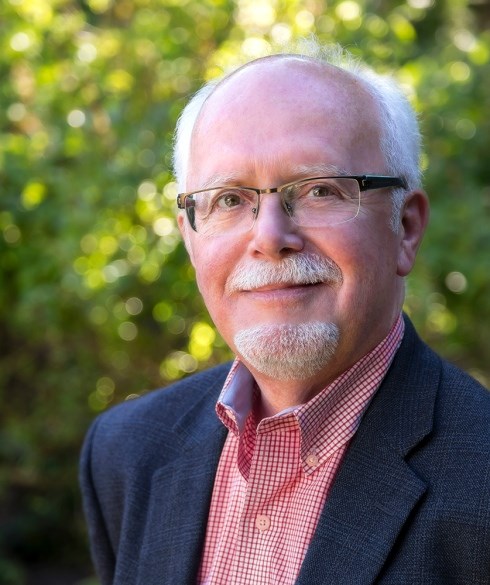 Words like “God” and “Jesus” can be loaded with a range of meaning and emotion, sometimes intended, sometimes not, and sometimes projected by people reacting to those terms. I presume this is also true of similar words in non-Christian religions, but I don’t know this as I know those contexts less well.
Words like “God” and “Jesus” can be loaded with a range of meaning and emotion, sometimes intended, sometimes not, and sometimes projected by people reacting to those terms. I presume this is also true of similar words in non-Christian religions, but I don’t know this as I know those contexts less well.
Words that can be heavily burdened with meaning and emotion can be tricky to use. They’re potentially explosive like hand grenades. They’re words of special sensitivity.
Yet this has little to do with the letters we combine to make those words or even with the words themselves. Rather it has everything to do with the meaning and feeling we impart to them.
Here are two examples from opposite ends of the spectrum. The first is a Times Colonist letter-to-the-editor that asked readers, “Please try to avoid the flippant use of ‘Oh, my God!’ which is so hurtful to Christians. This expression is appropriate for calling on the Most Holy God, the Creator and Sustainer of the universe.”[i]
The second example is from my own experience. I grew up with an aversion to the words “God” and “Jesus.” When I heard those words, it was as though something was being imposed upon me, as though I was in danger of being press-ganged into some organization against my will.
Yet as an agnostic 21-year-old in France in 1972, I toured medieval cathedrals and always admired their aspiration and the qualities of community and devotion that were essential to their construction. My aversion had to do, I think, with doubts about the church as a human institution run by fallible people and, perhaps even more, with my father’s negative experience of “all the palaver of religion” at British boarding school where he received “chapel twice daily, and a couple of lengthy ‘shots’ of church every Sunday.”[ii]
My perspective shifted in the mid-1970s. Several things happened, but one was uppermost: an experience of grace, an implanted thought at a critical moment, four simple words, “Steer steady and true.” It was the most galvanizing experience of my life.
When the soul speaks, according to Rudolf Steiner, it says, “I will tell thee in an unquestionable way.” Brother David Steindl-Rast adds that such an occasion is a “mysticism experience…. We cannot grasp it. But we can understand it…. It does something to you.”[iii]
The experience grasps us. As it does, we are given the opportunity to understand anew, reintegrating our internal world, broadening our horizons, enabling us to become expanded, fortified, and renewed versions of ourselves.
Dutch diarist Etty Hillesum underwent a profound spiritual transformation during the thirty-four months prior to her murder by the Nazis at Auschwitz in November 1943. In 1942, when she was 28, she addressed her dead mentor, Julius Spier: “You taught me to speak the name of God without embarrassment.”[iv] Her previous embarrassment is an example of the alienating power of the word “God” and the myriad meanings it can have for people.
Far from having forgotten my old aversion to the words “God” and “Jesus,” it has inculcated the belief that we should not impose our ideas on others. Rather we should seek to create conditions of safety and trust that may, in turn, through relationship and exchange, enable emergence and self-discovery in their own time.
I’ve made peace with the words “God” and “Jesus.” The former is now a convenient shorthand for what some mystics refer to as “the Generative Mystery,” while the historic Jesus and the notion of the Christ, with which he is associated, have become subjects of interest and exploration.
 Author/historian Patrick Wolfe has an abiding interest in grace and the mystic. The story of his “Steer Steady and True” grace experience can be found in the “Memoir” section on his web site: https://patrickswolfe.com/\
Author/historian Patrick Wolfe has an abiding interest in grace and the mystic. The story of his “Steer Steady and True” grace experience can be found in the “Memoir” section on his web site: https://patrickswolfe.com/\
You can read more articles on our interfaith blog. Spiritually Speaking. HERE
* This article was published in the print edition of the Times Colonist on Saturday, January 30th 2021
Photo of scrabble words Photo by Brett Jordan on Unsplash
[i] “An exclamation that some find hurtful,” Times Colonist, Saturday, January 11, 2020, A11. Fiona Price, when writing for “Faith Forum,” uses “G-d” rather than “God,” a practice of deep respect and reverence. As Ariela Pelaia writes in “The Jewish Spelling of ‘God’ as “G-d’”: “There is no prohibition in Jewish law against writing out or erasing the word ‘God,’ which is English. However, many Jews have afforded the word ‘God’ with the same level of respect as the Hebrew equivalents…. Because of this, many Jews substitute ‘God’ with ‘G-d’ so that they can erase or dispose of the writing without showing disrespect to God.” https://www.learnreligions.com/jewish-spelling-of-god-2076772
[ii] Pierre Wolfe, Reminiscences #20, p. 6 (Palaver). Pierre Wolfe’s letter mailed August 25, 1995, to David Lennam (Wolfe Family Notes, 70). See also, Patrick Wolfe, We are All Messengers, 54.
[iii] Rudolf Steiner, Christianity as Mystical Fact and the Mysteries of Antiquity, White Crow Books, 2011, 108. “Anatomy of Gratitude,” OnBeing, David Steindl-Rast interviewed by Krista Tippitt and syndicated from onbeing.org, February 9, 2016.
[iv] Etty Hillesum, An Interrupted Life and Letters from Westerbork, Holt, 1996, with a Foreword by Eva Hoffman and an Introduction by J.G. Gaarlandt, 200.



